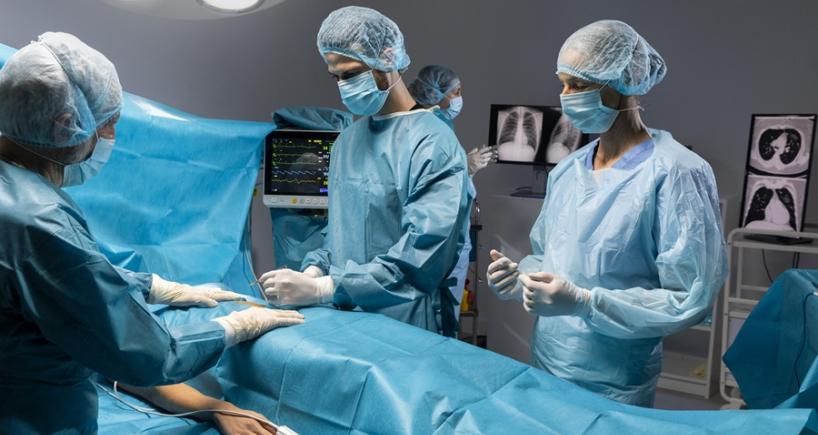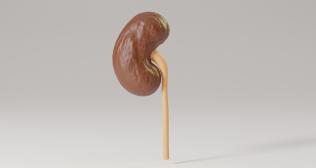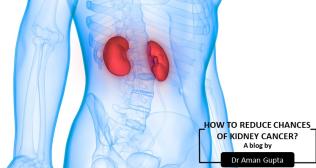
Comprehensive Guide to Prostate Surgery: Types and Considerations
Introduction
A prostatectomy refers to a surgical procedure wherein a urologist removes the prostate to treat prostate cancer or benign prostatic hyperplasia. Read on to find out about the types of prostate surgery, what to do before and after the procedure, and its side effects.
Types of Prostate Surgery
Radical Prostatectomy Surgery
- The major type of surgery adopted for prostate cancer is known as radical prostatectomy, wherein the surgeon (urologist) extracts the entire prostate gland and some of the surrounding tissue, including seminal vesicles. Sometimes, nearby lymph nodes are excised as well.
- There are two major ways a surgeon can do a radical prostatectomy:
- In an open prostatectomy, the surgeon operates through a single long skin incision to excise the prostate and surrounding tissues.
- In a laparoscopic prostatectomy, the surgeon makes various smaller incisions and utilizes long, thin surgical tools to excise the prostate and surrounding tissues.
Transurethral Resection of the Prostate (TURP)
- This type of surgery comprises the removal of a portion of the prostate gland. It is a technique performed through the penis with an endoscope (a tiny, flexible tube with a light and a lens on the end).
- This technique doesn’t cure cancer of the prostate gland but can take out the obstruction while the healthcare professionals plan for a definitive treatment.
Holmium Laser Enucleation of the Prostate (HoLEP)
- This is a minimally invasive procedure that utilizes laser beam pulses to remove tissue from the inside of the prostate, which surrounds the tube starting from the bladder to the urinary opening (urethra).
Robot-Assisted Laparoscopic Prostatectomy
- This is a minimally invasive surgery to excise the prostate. This operation has two types—the radical form is for prostate cancer, and the simple version is for benign prostatic hypertrophy, a condition in which the prostate gland is enlarged but not cancerous.
Before the Prostate Surgery
- Before prostate surgery, there are several things patients will have to do to prepare.
- Depending on the type of prostate surgery a patient is undergoing, they might be instructed to adjust some of the medications and/or food and drink from the night before the procedure.
- Patients may also need special preparation, including emptying bowels, the day before the surgery.
- If a patient is staying overnight in the hospital post-surgery, they should be prepared with any assistive devices (such as a walker), and if they are going home on the same day of the surgery, someone should be able to drive them home and assist them at home.
After the Prostate Surgery
- Patients should be given IV pain medicines. Healthcare professionals may order prescription pain pills to be taken after the IV is taken out.
- Healthcare professionals will expect patients to walk on the day of the surgery or the day after. Patients will also be asked to do certain exercises to move their feet while they are in bed.
- Patients can likely go home the day after surgery. When their healthcare professional considers it safe for them to go home, the pelvic drain is taken out. Patients may need to visit the doctor again in one or two weeks to have the staples taken out.
- The patient will return home with a catheter in place. The majority of men require a urinary catheter for a week to 10 days after the surgery. Complete recovery of urinary control can take up to 12 months after the surgery.
Side Effects of Prostate Surgery
Because the prostate is in proximity to various vital structures, prostate cancer surgery can hamper the normal functioning of the urinary, bowel, and sexual systems.
Urinary Incontinence
- If the sphincter at the bladder base is injured during a prostatectomy, some degree of urinary incontinence or leakage may occur.
- Approximately all males will have a certain type of leakage immediately after the surgery, but this will improve over time as well as with strengthening exercises.
- The majority of men regain urinary control within 12 months; approximately one in five men will have mild leakage, requiring the usage of one or more pads per day long-term.
- Pelvic floor muscle training under the mentorship of a physical therapist can help. In cases where side effects are critical, an artificial urinary sphincter may be considered.
Sexual Function
- Erectile dysfunction remains a prominent side effect of a prostate surgery.
- This is because the nerves and blood vessels that control the physical features of an erection are incredibly delicate, and any type of trauma can result in significant changes.
- Modern studies have depicted that, overall, about 40% of men lose some erectile function after the surgery.
- However, within 1–2 years after the treatment, the majority of men with intact nerves will observe a substantial improvement.
- A surgeon’s or a physician’s skill can significantly impact this outcome. So, choose your team carefully.
- Similarly, males with baseline erectile dysfunction and/or other diseases or disorders that impair their capability to maintain an erection, such as diabetes or vascular problems, will have a tougher time returning to pre-treatment function levels.
- It’s important to remember that functionality post-treatment can only be as good as it was before the treatment.
- The excellent predictor of how a patient will be after the treatment is how healthy the patient was before the treatment.
Fertility
- After prostatectomy, there is less probability that the patient will be able to father children through sexual intercourse.
Bowel Function
- It is very unusual (less than 1%) for men to have a modified bowel function after the surgery. In unusual cases of locally advanced prostate cancer where the cancer extends up to the rectum, surgery may result in damage to the rectum.
If facing any adverse effects post-prostate surgery, individuals should seek immediate medical attention to prevent further complications.
Popular Searches :
Hospitals: Cancer Hospital in Delhi | Best Heart Hospital in Delhi | Hospital in Amritsar | Hospital in Ludhiana | Hospitals in Mohali | Hospital in Faridabad | Hospitals in Gurgaon | Best Hospital in Jaipur | Hospitals in Greater Noida | Hospitals in Noida | Best Kidney Hospital in Kolkata | Best Hospital in Kolkata | Hospitals in Rajajinagar Bangalore | Hospitals in Richmond Road Bangalore | Hospitals in Nagarbhavi Bangalore | Hospital in Kalyan West | Hospitals in Mulund | Best Hospital in India | Gastroenterologist in Jaipur | Cardiology Hospital in India
Doctors: Dr. Rana Patir | Dr. Rajesh Benny | Dr. Rahul Bhargava | Dr. Jayant Arora | Dr. Anoop Misra | Dr. Manu Tiwari | Dr. Praveer Agarwal | Dr. Arup Ratan Dutta | Dr. Meenakshi Ahuja | Dr. Anoop Jhurani | Dr. Shivaji Basu | Dr. Subhash Jangid | Dr. Atul Mathur | Dr. Gurinder Bedi | Dr. Monika Wadhawan | Dr. Debasis Datta | Dr. Shrinivas Narayan | Dr. Praveen Gupta | Dr. Nitin Jha | Dr. Raghu Nagaraj | Dr. Ashok Seth | Dr. Sandeep Vaishya | Dr. Atul Mishra | Dr. Z S Meharwal | Dr. Ajay Bhalla | Dr. Atul Kumar Mittal | Dr. Arvind Kumar Khurana | Dr. Narayan Hulse | Dr. Samir Parikh | Dr. Amit Javed | Dr. Narayan Banerjee | Dr. Bimlesh Dhar Pandey | Dr. Arghya Chattopadhyay | Dr. G.R. Vijay Kumar | Dr Ashok Gupta | Dr. Gourdas Choudhuri | Dr. Sushrut Singh | Dr. N.C. Krishnamani | Dr. Atampreet Singh | Dr. Vivek Jawali | Dr. Sanjeev Gulati | Dr. Amite Pankaj Aggarwal | Dr. Ajay Kaul | Dr. Sunita Varma | Dr. Manoj Kumar Goel | Dr. R Muralidharan | Dr. Sushmita Roychowdhury | Dr. T.S. MAHANT | Dr. UDIPTA RAY | Dr. Aparna Jaswal | Dr. Ravul Jindal | Dr. Savyasachi Saxena | Dr. Ajay Kumar Kriplani | Dr. Nitesh Rohatgi | Dr. Anupam Jindal |
Specialities: Heart Lung Transplant | Orthopedic | Cardiology Interventional | Obstetrics & Gynaecology | Onco Radiation | Neurosurgery |



















